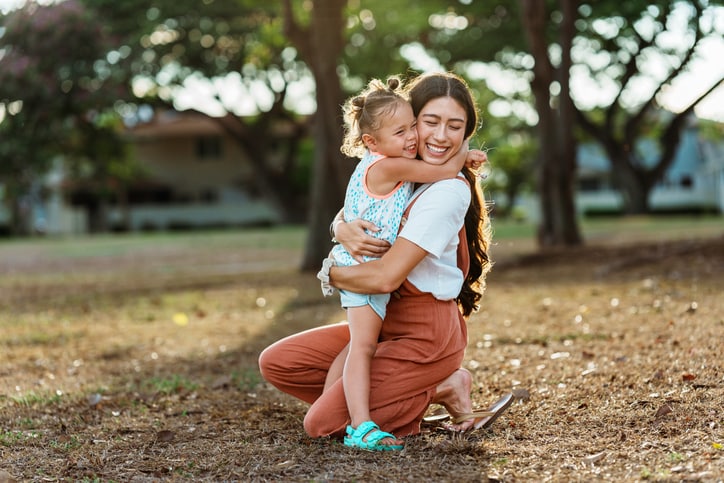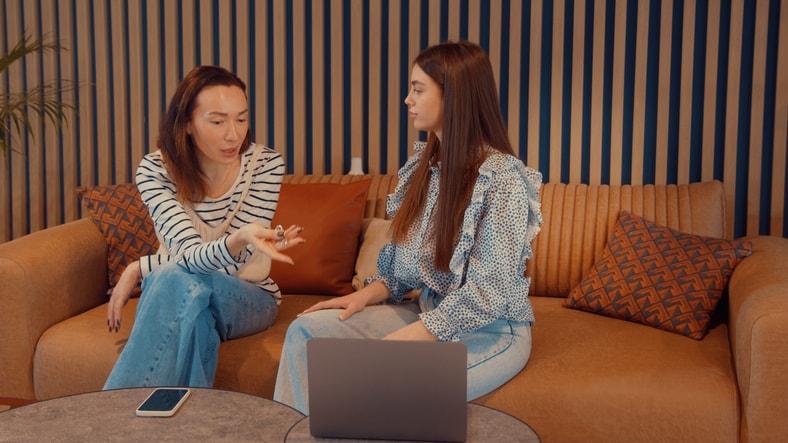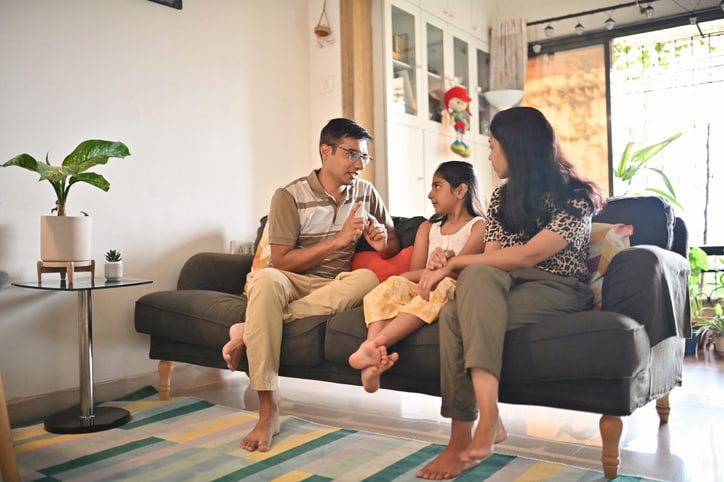Parenting in this time of coronavirus is adding an extra layer of learning to everything we thought we knew about finding and hiring quality child care for our kids. Of course, there are still the usual interview questions to ask while vetting a caregiver, but now there are also questions we need to be asking around COVID-19, too.
Even if you already have a great caregiver who’s able to continue working during the pandemic, there are questions you need to be posing to them to keep both you and your caregiver safe and healthy.
Here are some things to think about when hiring child care amid coronavirus.
Screen caregivers by phone or video call
If you’re searching for a new caregiver right now, make sure to do all your pre-screening by phone or video conferencing in order to keep everyone safe and healthy. Try Zoom, Google Hangouts or FaceTime. This will help ensure that everyone feels comfortable before setting up a face-to-face meeting.
Ask all the usual questions
As always, the safety of your child and the quality and fit of the caregiver is critical to a positive care situation. That means, of course, you still need to go through the regular interview questions and follow safety guidelines, including background checks, with any nanny or sitter you plan to hire.
Here’s some guidance on the essential questions to ask a caregiver before hiring:
New questions to consider during coronavirus outbreak
During this health crisis, it’s important to directly address and discuss pandemic safety with your existing nanny or sitter or any prospective caregivers you may be hiring. The goal is to keep communication open and make sure everyone is prepared to work together in order to keep families and their caregiver healthy.
We asked Dr. Sarah Post, a primary care doctor from Boston, Massachusetts and mom of two young children, to share some of the specifics she included in her coronavirus-specific nanny contract. Here are the precautionary additions her family added to their caregiver’s contract.
1. Can you follow these hand-washing and hygiene practices?
-
Have kids wash hands or use hand sanitizer before going outside and after coming back inside, before and after eating (including snacks), after using potty and after being caught with hands in noses or mouths.
-
Encourage kids not to put hands or toys in their mouths (with the caveat that this is not always possible but with the intention that everyone tries their best!)
-
Wash any toys that kids put in their mouths either right away or once they’re done playing with them
-
Minimize the kids’ sharing of food, utensils, water bottles, snack cups and anything else that goes in their mouths.
2. Are you comfortable following the current limitations when caring for kids outside the house?
-
Practice physical distancing at least six feet from other people when outside the home.
-
Play in the backyard or on the front porch and walking/scooting are the preferred outdoor activities.
-
Parks may be OK, but make sure to check with local authorities, as the situation changes daily. Make sure to use hand sanitizer after!
-
Playgrounds should be avoided.
-
No indoor or outdoor activities in group settings for now.
-
This means no libraries, bookstores, restaurants, grocery stores, retail stores, movie theaters, sports practices, swim lessons, etc.
-
-
No play dates.
3. Do you agree to this communication around illness or symptoms?
In Post’s situation, it’s written into the contract that if either Post or her partner get sick, their caregiver will stay home from work until further notice. This helps protect their caregiver should the family contract any illness, but particularly coronavirus.
As part of the two-way communication they expect with their caregiver, they’ve also asked their nanny to keep them posted regarding their health.
-
The caregiver agrees to report any symptoms of illness (including cough, sore throat, fever) so, together with the family, everyone can make a determination about whether it’s OK to come to work.
-
If one of the kids seems sick, the nanny should let the parents know right away by text and take their temperature as soon as possible.
You may also consider checking in with your caregiver each day to make sure they are fever free and have not developed any new signs of potential illness.
4. Can you agree to disclose any travel outside the area?
While amid a pandemic, Post has put it in writing that their family will not travel outside the area and will have no visitors in their home. They also strongly discourage their nanny from traveling outside their area; however, it’s a good idea to put a policy into your contract in case your caregiver does opt to travel.
Here’s an example of how that might read:
“If you do opt to travel outside of [INSERT DEFINED AREA] while this policy is in effect, you agree not to return to work until 14 symptom-free days after your return. Any such missed work days would be taken out of vacation time, or be unpaid.”
[June 2020; EDITED TO ADD]
In addition to these guidelines, the Centers for Disease Control and Prevention (CDC) also suggests you wear a cloth mask over your nose and mouth, in combination with physical distancing, hand-washing and everyday preventative actions. Masks protect others more than they protect you — so it’s a good idea if everyone working together in the home, with the exception of children under 2 years old, wears one.
Considerations about compensation and sick time
These special circumstances call for special considerations for the caregivers they employ. Remember, caregivers are often among the most vulnerable, as they work so closely with their families. At the same time, they may be working without benefits like paid vacation or sick time.
For all these reasons and because everyone’s health is of utmost importance, here are some recommendations around pay and sick leave to consider.
-
If you don’t currently offer sick days, consider doing so, now and after coronavirus. You want your caregiver to feel really comfortable taking time off if they’re sick.
-
Post’s family already offers sick days but has also determined during this time that any sick days needed related to the coronavirus policies will not be debited from the nanny’s annual sick day pool.
-
Increase your caregiver’s wage if they are taking on additional school-aged kids or increased duties beyond their usual ones, like additional cleaning, handling laundry, etc.
-
Stay informed about the Families First Act, which the president signed on March 18, 2020, to help employers and their employees deal with the personal and financial strain associated with the novel coronavirus disease (COVID-19).
For more information, check out the CDC’s guidance on maintaining a safe work environment in light of COVID-19.






